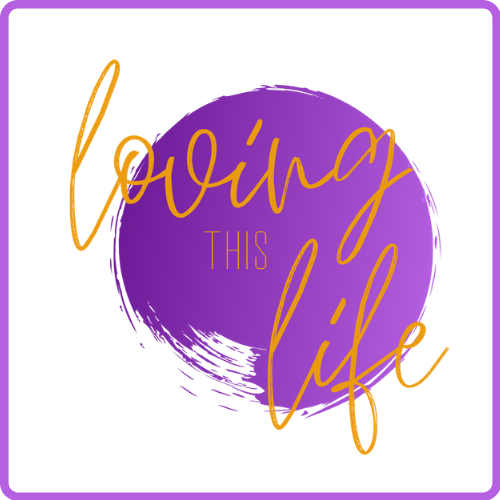
Who do you want to be – even with Fibromyalgia / Chronic Illness?
One of the first things you think about when you’ve been diagnosed with fibromyalgia, or any chronic illness, is how is this going to affect your life? Initially, it can feel like you have no choices at all. The pain and/or fatigue overtakes your life and you can’t do anything that you used to do.
Changes need to be made in your life to manage the various symptoms that can be overwhelming at times. It’s a time of adjusting as you work out what you need to let go of, and what you need to do to help you have some quality of life. Each person needs to allow themselves the time to go through this process.
As well as this, you need to choose who you want to be as a person.
Here are five ways you can choose to live your life:
- As a Grouch. Now let me be honest, we all have days when all we want is to tell somebody how we are feeling. This isn’t what the Grouch is. The Grouch wants to tell people over and over and over again how lousy they feel. They don’t want to be left alone. (That means they would have to listen to themselves whinge!). They want to keep on saying how unfair life is; how much pain they have; and how weak they feel. They don’t want to let go of these feelings. In a strange way there is something normal about the place they are in. At least they know what they feel, and they have a need to keep on telling others about it.
Another way you can choose to live your life is:
- In Denial – Let me tell you right up front, this one has a very short life-span. It’s just not possible to ignore all of the symptoms and go on living life to the fullest. Unless you’re Superwoman or Iron Man – you will “crash” sometime.
The following quote from the Mayo Clinic Staff describes when being in denial is okay: “Denial is a coping mechanism that gives you time to adjust to distressing situations — but staying in denial can interfere with treatment or your ability to tackle challenges.” Denial has to only have a short life span, otherwise it has negative consequences and stops you from moving forward. Here are 3 different levels of being in denial:
- Total denial – where you don’t acknowledge anything about what is happening for you physically, emotionally and spiritually. This is a dangerous and unhealthy place to stay. At some point you need to accept your current situation, so you can move on and live your life.
- Partial denial – where you own that you have limitations, but don’t like to let them dictate what your life looks like. This sounds okay, doesn’t it? Isn’t it better to try and keep on living life the way you used to do? Only if you want to “crash and burn” somewhere down the track.
There are often times when we all live in partial denial, especially when we don’t want to have to face something about ourselves. Again, it can be seen as a time of adjustment, but we need to move forward with our lives, we need to accept our lives without filters.
- Partial acceptance – this is starting to look a little healthier than the other two. At least with partial acceptance, we are naming and owning that part of our life has changed. We may accept that we have a chronic illness; or that we have to “slow down” a little, etc.
But we still don’t own that our lives have changed, and life may never look the same as it was before.
All of these ways of living in denial may occur for a short time when you first receive your diagnosis. That’s normal. But it’s not normal to stay in any of these phases. You need to look beyond and move forward.
3. As a Manipulator – is another way to choose how you live your life with chronic illness. (It sounds almost evil doesn’t it?) In this stage you acknowledge some or all of your illness and use it to help you get out of things that you don’t like to do! Or maybe, get things that you want. You don’t have any intention of working out how to best live your life and work around your limitations. You just use your illness when it suits you.
Not a particularly healthy way to live your life. It also won’t help you to keep your friends. They will see through you and disappear quickly.
- Seeking Sympathy – this one could come under the Manipulator, but I think it deserves a category of its own.
I’m sure we’ve all comes across somebody who lives with a “woe is me” attitude and just wants to have everybody’s sympathy. “Poor me. Look at what I have to live with. Aren’t I amazing the way I live with chronic illness?” I’m sure you get the gist of it.
To be totally honest with you, I don’t understand why anyone would ever want to live their life seeking sympathy. But people do. They want to have that experience of being the centre of attention with people acknowledging how hard life must be, etc. For me, I would find this draining. I don’t like people mothering me – and this is what seeking sympathy can partly be about. “You poor thing, etc”
But there are plenty of people around who live in this state of seeking sympathy. It isn’t healthy at all and I encourage you to think if there is any part of your life where you do seek sympathy and how you can change your behaviour to something healthier and life giving.
- You can also choose to accept your life and move forward.
It is very normal to have moments where you live some of the above-mentioned ways – especially when you first receive your diagnosis of your chronic illness and are trying to work out how to live with it. But it isn’t healthy to stay stuck in any of them.
For many, the journey to receiving a diagnosis has been a long and tedious one. You’ve often felt misunderstood; judged; seen as having symptoms “all in the head”; alone; scared, to name a few…
When you finally have a name for what you live with, it can come as a shock.
You’ve been pushing so hard just to find answers to what’s wrong with you, you almost don’t believe it when you do have a diagnosis.
This can be quite a confusing time. To start with there can be more questions than answers:
-
-
- What does having this illness mean?
- How am I supposed to live with this?
- Is there any help I can get?
- Who can tell me what this condition actually is and does to me?
- What is normal for me now?
-
It’s very normal to have lots of questions.
Your challenge will be to have enough patience with yourself and others as you try and seek answers. You may not even know yet what the questions are that you need to ask!
That’s okay. It’s quite normal to have lots of questions at this time. We need to give ourselves time to work out what our next steps are.
When I was told that I have Fibromyalgia, the pain specialist told me two things. Firstly, that it wouldn’t kill me and secondly, that there’s no cure for it and I’ll have it for the rest of my life.
That’s quite a curve ball that I and many, many others have received, when diagnosed with a chronic illness. It’s no wonder that it upends our life for a period of time.
But one of the most important things that I have learnt is that I can still choose how I will live my life.
Of course, I have limitations due to my illness, but there are still many ways that I can choose how I live my life at this time.
Victor Frankl states: “When we are no longer able to change a situation, we are challenged to change ourselves.”
This is the challenge we hit with a diagnosis, isn’t it? We can’t change that we have Fibromyalgia (or your conditions name), but we can still choose how to live our life and who we want to become.
When we accept this, we can move on into the life that still awaits us. Yes, it will look different to what was expected it to be before our illness.
But it is still life – your life and it’s yours to grab hold of and shape in your own unique way.
I’ve mentioned before in my blog about my brother-in-law who passed away a few years ago from Motor Neurons Disease. (If you don’t know what this illness is click here for more info https://m.mndaust.asn.au/Get-informed/What-is-MND )
Even when he couldn’t walk anymore; couldn’t speak; had limited movement; couldn’t do anything that he used to love to do, was literally wasting away – he could smile. Whenever someone walked into the room, he smiled, and the room would light up. (It wasn’t an artificial smile – it was genuine and everyone on the receiving end of that smile felt the warm glow from it.)
My brother in law could have just as easily greeted each person with a frown, ignored them or shown no warmth at all – and who would have blamed him! But he chose to give all those who entered his life at this time a smile. I’m not sure I’ve ever received such a precious gift.
He has certainly challenged me to work at how I live my life.
How will you choose to live your life?




